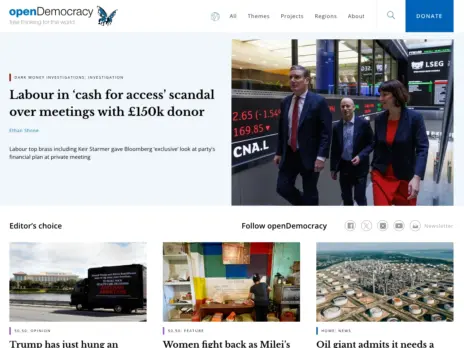Guardian media blogger Roy Greenslade once described Express Newspapers boss Richard Desmond as a “rogue publisher” in a piece outlining his decision to leave the PCC.
From Monday it is Guardian News and Media which is going “rogue” – along with The Independent, Evening Standard and FT – by withdrawing from press regulation. The Guardian has emphasised that this situation is temporary and that talks are ongoing with IPSO.
It is because concerns flagged up by The Guardian about the independence of IPSO have been ignored.
They feel it is still controlled by the major newspaper publishers, via the Regulatory Funding Committee, and so is ultimately unlikely to do anything which would undermine their own business interests.
The Guardian will instead be regulated by its own readers' editor – long-term Guardian staffer Chris Elliott – and by a trio of external ombudsmen appointed by Guardian News and Media's owner, the Scott Trust.
The Guardian readers' editor is an admirable institution and it is quicker than many titles at correcting inaccuracies.
But a corrections column which takes up one tenth of page 33 is arguably a weaker form of self censure even than the old PCC which required that critical adjudications be published with "due prominence".
Accuracy complainants are not always satifisied with the service they get from the readers' editor, as illustrated by this upheld PCC complaint relating to some inaccurate Guardian coverage about the Royal Charter on press regulation.
Guardian News and Media was a reasonably frequent user of the PCC, which published some 168 reports resulting from complaints against its titles. Where will those complainants, who evidently were not satisfied with the papers' internal process, go in future? If they can afford to, lawyers, and if they can't…well that's just going to be tough.
The Guardian has a point when it comes to the independence of IPSO and it is to be hoped that director Sir Alan Moses and his publisher paymasters are able to take its concerns on board and come up with a middle way.
But ultimately The Guardian is going to have to choose between either an imperfect IPSO or a rival press regulator, IMPRESS, which looks likely to submit to the "medieval nonsense", as Guardian editor Alan Rusbridger put it, of a Royal Charter.
Because it can hardly criticise a system of self regulation which has the “tentacles” of press owners all over, as it said today in a leader, when its own watchdogs are appointed entirely by the owners of The Guardian.
Email pged@pressgazette.co.uk to point out mistakes, provide story tips or send in a letter for publication on our "Letters Page" blog






